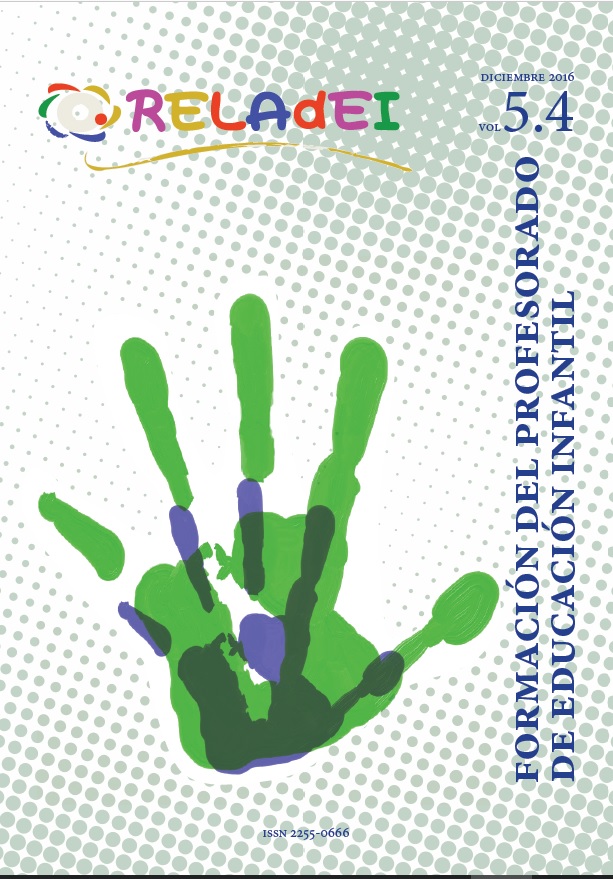A way of transformation. research and training with theater in pre-school education
Contido principal do artigo
Resumo
Involving children in theatre at school means ritualizing and progressively enhancing the educational valence of a language and a natural inclination that are typical of both children and educational settings. In this paper, we present the outcomes of an action research project involving childhood education services, educators, teachers, children and their families, which allowed us to experience the implicitly theatrical dimension of school life and more consciously help it to emerge. The aim of this training and research programme was to systematise diverse projects – all centred around theatre, theatricality and its various forms – that were already ongoing in early childhood education centres and preschools. Through this programme, we set out to train teachers and educators in recognizing and harnessing the educational potential inherent in theatre, both in the course of their everyday educational practice and in designing and implementing cycles of workshops based on the languages and techniques of theatre. Two specific research hypotheses were formulated by the research team. The first hypothesis was that theatre is already part of daily educational action with pre-schoolers, because it is present in the domains of narrative, symbolic play, expressive and bodily play, self-discovery and self-expression in the group context. Hence, we set out through our research to identify the existing relationship between theatre and everyday educational practice, between the visible and invisible theatres that are already present in our schools; we also wished to identify the urgent areas of need in which theatre can act as a vehicle and driver of educational change. The second hypothesis concerned the transformative function that theatre can fulfil in (pre)school settings: the research aim here was to identify the conditions under which theatre can bring about change in any educational context, by facilitating cognitive decentring, enhancing subjects’ awareness of their “role” and their relationships with others, allowing them to “theatrically render” their relationships and mutual positioning, and leading them to discover new languages and expressive techniques.
Detalles do artigo
Artigos mais lidos pelo mesmo (s) autor (es)
- Mónica Guerra, Documentare le progettualità. Nei servizi e nelle scuole per l’infanzia. De Malavasi e Zoccattelli (2012) , RELAdEI. Revista Latinoamericana de Educación Infantil: v. 1 n. 1 (2012)
- Monica Guerra, Materiales no convencionales en la escuela: experiencias didácticas y potencialidad formativa. , RELAdEI. Revista Latinoamericana de Educación Infantil: v. 1 n. 2 (2013)
- Monica Guerra, Federica Valeria Villa, Vlad Glăveanu, The teacher's role in the relationship between creativity and outdoor education: a review of the literature , RELAdEI. Revista Latinoamericana de Educación Infantil: v. 9 n. 2 (2020): Malaguzzi: cien años de luz pedagógica
- Monica Guerra, Federica V. Villa, Vlad Glăveanu, Creativity and outdoor education in primary schools: a review of the literature , RELAdEI. Revista Latinoamericana de Educación Infantil: v. 10 n. 1 (2021): La música en la Educación Infantil


